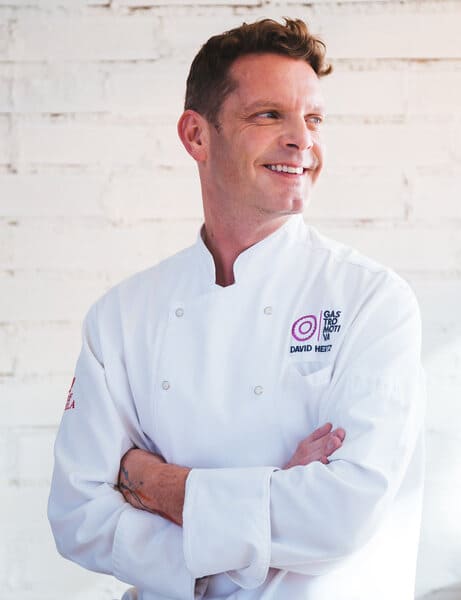A shared table: Chef David Hertz on how gastronomy can tackle global challenges
A Q&A with the founder of Brazilian nonprofit Gastromotiva
May 15, 2018
 David Hertz, founder of Brazilian nonprofit Gastromotiva
What is the Social Gastronomy Movement?
David Hertz, founder of Brazilian nonprofit Gastromotiva
What is the Social Gastronomy Movement?
Social gastronomy is a human-centered solution that uses the power of food and the tools of gastronomy to address some of the most complex issues in our society: poor nutrition, food waste, poverty and social inequality. Many chefs and organizations have pioneered the movement, including Gastromotiva. Now we’re looking to partners like Cargill to help take it global.
How does Gastromotiva work?
We provide free vocational kitchen training, entrepreneurial classes and nutrition education in communities across Brazil, El Salvador, South Africa and Mexico. In Rio de Janeiro, we operate Refettorio Gastromotiva, which serves as both a school and a restaurant. So, we teach students how to prepare delicious, healthy meals made from food surplus that would otherwise go to waste, then serve the meals to people in need. Our food is served in a welcoming space that encourages dialogue and companionship. This is an important element of social gastronomy; we aren’t just trying to feed people, we’re also trying to restore their dignity.
What inspired you to get involved in non-profit work?
I founded Gastromotiva to create opportunities for those living on the margins of society. I was trained as a chef, but I also traveled the world when I was very young and had all the opportunities to find the job of my dreams. I believe that if you have access to education and to opportunities, you can find your passion and your purpose. By training people to work as chefs, feeding those in need and using food that would have otherwise gone to waste, we generate opportunities, lift up those who are struggling and empower the world through service.
Why do you think food and gastronomy are such powerful tools?
Food unites all of us. In the face of complex social, environmental and economic challenges, social gastronomy can bring us together, to a shared table. It can build the bridge between grassroots solutions, policy makers and business leaders.
Cargill has signed on as a founding partner to the Social Gastronomy Movement, which includes a three-year, $1.5 million commitment. Why did you want to partner with Cargill on this?
Cargill and Gastromotiva are joining forces to make something much bigger than ourselves—to accelerate a movement that will reach the masses. With Cargill, we can scale up the movement and bring in others from the food and agriculture industry. Fighting hunger and fighting poverty are everyone’s jobs, and when we merge ideas we will be able to get even more people on board.
